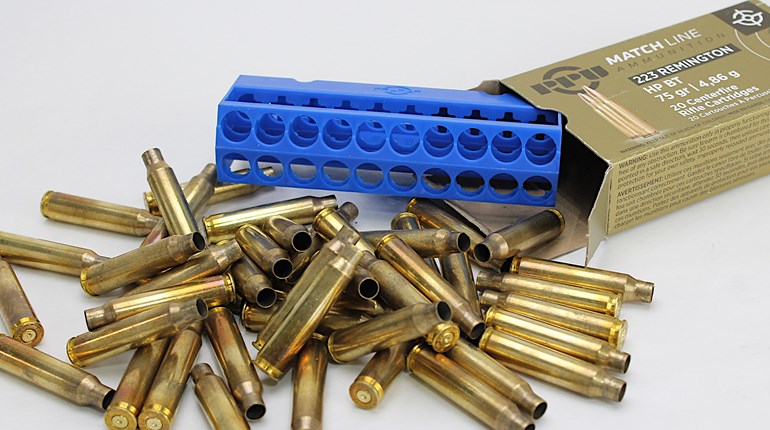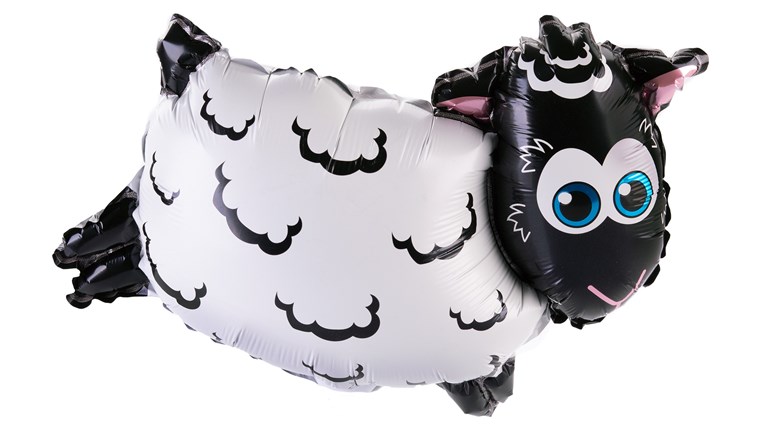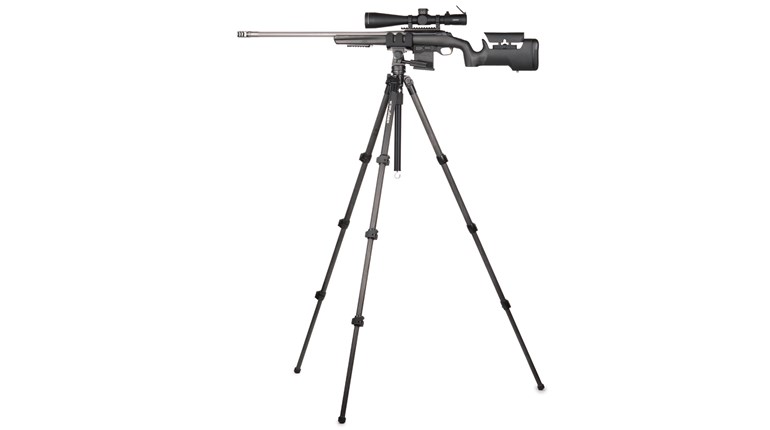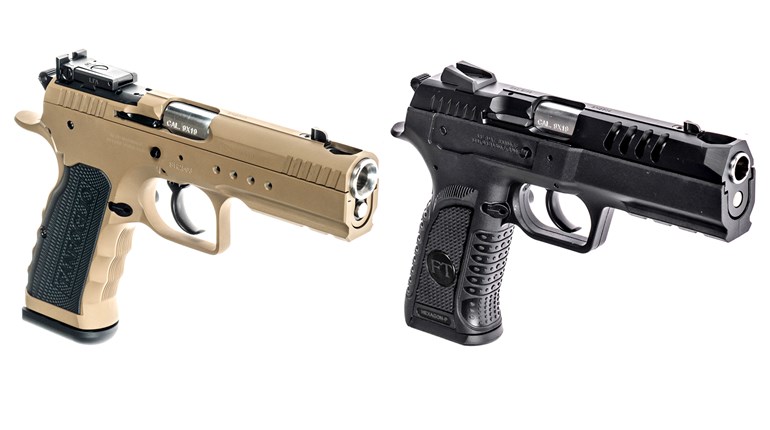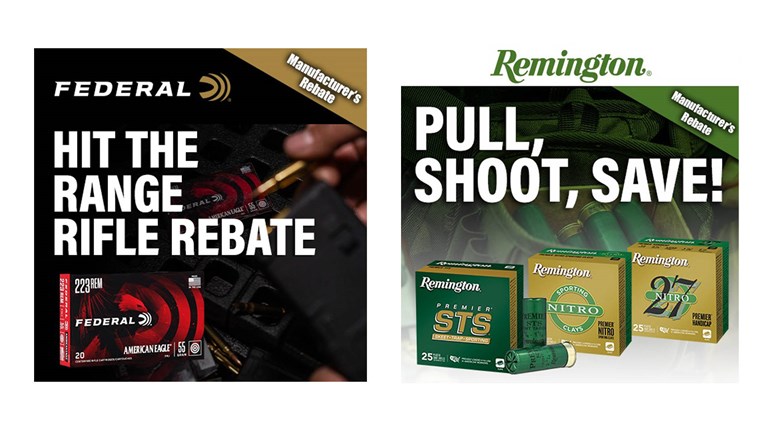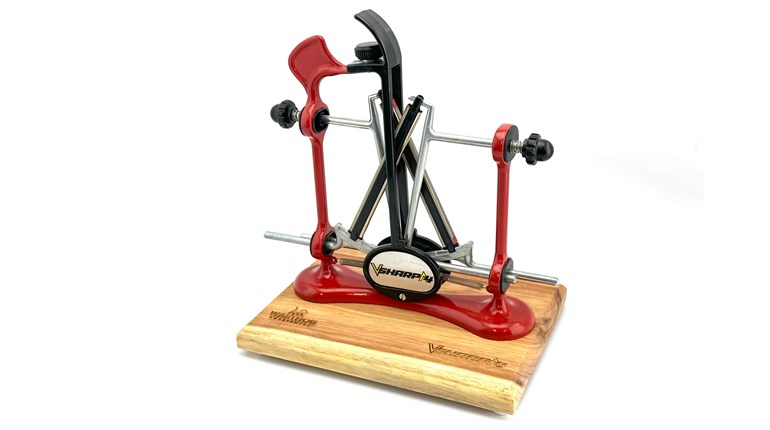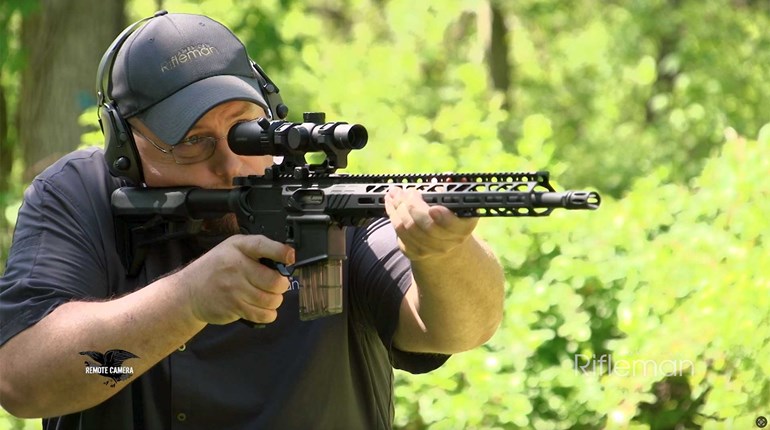
Using your resources efficiently can help you maintain a decent level of proficiency. Here are a few penny-pinching ideas to help preserve your bottom line along the way.
Ammo
Loading your own ammunition is a good money-saver, but the equipment required to get started is still a significant investment. Companies like Dillon Precision, Hornady and RCBS offer great starter kits that help shave up-front costs. Remember to factor in reusable brass, primers, powder, projectiles and loading dies for each cartridge you intend to handload. Supporting equipment such as brass tumblers, cleaning media and case-prep tools can be added as you go along. If you shoot often or in high volumes, this equipment is definitely a worthwhile investment.
A variation of the ammo-matching concept I described in the "Matchmaking" article is to find good multipurpose projectiles for your rifles. My most accurate 7.62x39 mm factory load (.6 to .75 MOA) uses FMJ bullets, so I relegate it to range use only. In the woods, I rely instead upon Federal's 123-grain soft-point load, which prints .7- to 1-MOA groups out to 300 yards and performs very well inside critters. Such performance is adequate for target shooting, training, hunting and home defense.
Accessories
A good set of binoculars is more versatile than a spotting scope if your rifle shooting goes beyond static belly or bench work. Canon makes 8X and 10X stabilized binos with street prices between $350 and $425. While not exactly cheap, these optics work well for static spotting and wide-area observation. Their power is less than a typical spotting scope, but the trade-offs are increased fields of view, small package sizes, excellent image clarity and phenomenal stability without a tripod. I relied heavily on stabilized binoculars for reconnaissance and sniper/observer duties while in the military and currently use the 10X Canon model for hunting, viewing hits on static targets and spotting for other shooters.
Some higher-end aftermarket products are worth every penny you pay for them. Shilen barrels, Geissele triggers, Black Hills Ammunition, Magpul PRS stocks and Harris bipods are all good examples. But, lesser-known brands like Yankee Hill Machine, Evolution Gun Works, Midwest Industries and C-Products also bring tremendous bang for the buck. Every month, I repair or replace expensive parts on rifles brought into my shop. Most often, the problems lie in crummy designs and are remedied with items that cost half as much and perform twice as well.
Range Time
Once a week, I drive 130 miles (round trip) to spend 10 hours on the test range. I typically bring more firearms than I can shoot in a day. If one gun has problems, or on the rare occasion where everything goes according to plan and I finish early, the additional rifles help me get the most out of my time and fuel.
Practical targets need not be expensive or fancy. Six-inch-diameter paper plates cost approximately $20 for a 1,000-count package. Add 50 cents for a black marker to draw aiming circles, animal outlines or scary clown faces, and these 2-cent targets become a great bargain. Long-range shooters can save money, too. Several years ago, I bought four "end-rolls" of unused newsprint from a local newspaper. These rolls contain hundreds of feet of clean paper and are perfect for making larger targets. A can of black spray paint and a cardboard template make for endless aiming-point possibilities. The rolls cost me all of 50 cents each, and I have exhausted only one in the last four years.
Maintenance
Heavy shooting requires frequent cleaning, so I look for products that perform and function well. Solvents that do double duty as cleaners and protectors are good options, and I find Kano Kroil is superb in both categories. Old cotton T-shirts are a good source for bore patches, though tight rifle bores require smaller-than-normal sizes to avoid getting stuck.
Learning how to do basic repairs and modifications to your own guns can also save you money. Beware of blogger tutorials though; some are pretty good and others are dreamt up by pajama-wearing basement dwellers. Fortunately, self-help gunsmithing products from Brownells, MidwayUSA and the American Gunsmithing Institute are inexpensive and helpful for everything from detailed disassembly to advanced repair work.
My last money-saving tip is to make do with on-hand items as long as they remain functional. I recently rediscovered a "seasoned," 10-year-old EOTech sight in my junk bin. It had stopped working years ago, so I sent it off to the company and one month later, I received a repaired sight. Total cost: $7 in first-class postage.
I repainted the old clunker and it now has a new life atop a rifle that was in need of an optic. A quick excavation through your old gear bags just might help you delay having to spring for new equipment.












